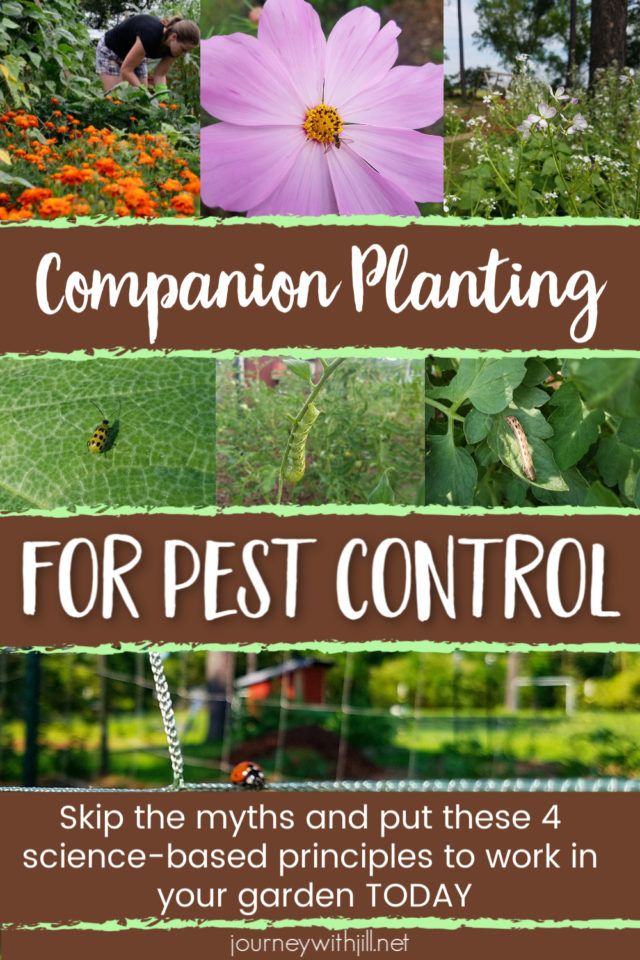Rosemary & Thyme: Companion Planting And Pest Control

Table of Contents
Tired of battling garden pests with harmful chemicals? Discover the natural power of companion planting with rosemary and thyme! These aromatic herbs offer a sustainable and effective way to protect your plants, boosting your garden's health and productivity without resorting to harsh pesticides. This article explores the synergistic benefits of this dynamic duo, detailing their pest-repelling abilities and optimal planting strategies for a thriving, pest-resistant garden.
<h2>Rosemary's Role in Natural Pest Control</h2>
Rosemary ( Salvia rosmarinus) is more than just a culinary delight; its strong, pungent aroma acts as a powerful deterrent against a wide range of common garden pests. This natural pest control method is both effective and environmentally friendly.
<h3>Repelling Insects</h3>
The intense fragrance of rosemary is largely due to its essential oils, which disrupt the pheromones of many insects, making it difficult for them to find and mate. This effectively reduces their populations and minimizes damage to your plants.
- Cabbage moths: Rosemary's scent keeps these destructive pests away from your brassica crops.
- Carrot flies: Protect your carrot harvest by planting rosemary nearby.
- Bean beetles: Keep bean beetles at bay and enjoy a bountiful bean harvest.
- Aphids, whiteflies, and spider mites: Rosemary's aroma also deters these common sap-sucking pests.
The essential oils in rosemary leaves contain compounds that interfere with insect behavior, preventing egg-laying and disrupting their life cycle.
<h3>Attracting Beneficial Insects</h3>
While repelling harmful insects, rosemary also attracts beneficial insects that act as natural predators. This creates a balanced ecosystem within your garden, further reducing the need for chemical interventions.
- Ladybugs: These voracious aphid predators are drawn to rosemary, helping control aphid infestations naturally.
- Lacewings: These beneficial insects prey on a wide array of soft-bodied insects, including aphids and whiteflies, further enhancing your garden's natural pest control.
<h3>Improving Soil Health</h3>
Rosemary's extensive root system contributes to improved soil health. Its deep roots help aerate the soil, improving drainage and providing better access to nutrients for neighboring plants.
<h2>Thyme's Contribution to a Healthy Garden</h2>
Thyme (Thymus vulgaris), another culinary herb, also plays a significant role in natural pest control within a companion planting strategy. Its strong scent and active compounds effectively deter various pests.
<h3>Pest Repellent Properties</h3>
Thyme's aromatic oils, particularly thymol, possess potent insecticidal properties. This makes it an effective deterrent against numerous garden pests.
- Cabbage white butterflies: Protect your brassicas from the ravages of these hungry caterpillars.
- Ants: Thyme can help deter ants from your garden beds and plants.
- Caterpillars: Several types of caterpillars find thyme's aroma unpleasant and will avoid plants growing nearby.
- Soil-borne pests: Thyme's presence can also reduce populations of certain soil-borne pests.
<h3>Attracting Pollinators</h3>
Thyme's delicate flowers are highly attractive to pollinators like bees and butterflies. These beneficial insects are crucial for the pollination of many plants, leading to increased fruit and seed production in your garden. Increased pollination translates directly to a healthier and more abundant harvest.
<h3>Improving Soil Structure</h3>
Unlike rosemary's deep roots, thyme's shallow root system helps prevent soil erosion and improves soil structure, contributing to a healthier growing environment for all your plants.
<h2>Optimal Planting Strategies for Rosemary & Thyme</h2>
The key to maximizing the pest-control benefits of rosemary and thyme lies in strategic planting.
<h3>Interplanting</h3>
Interplanting, or planting rosemary and thyme among your vegetables and other herbs, creates a natural barrier against pests.
- Alternating rows: Plant rows of rosemary and thyme alternating with your vegetable crops.
- Perimeter planting: Create a protective perimeter around your garden beds by planting rosemary and thyme along the edges.
<h3>Companion Planting Combinations</h3>
Certain plants benefit particularly from the presence of rosemary and thyme.
- Rosemary: Pairs well with brassicas (cabbage, broccoli, cauliflower), carrots, beans, and potatoes.
- Thyme: Is a great companion for tomatoes, potatoes, and other vegetables susceptible to pest infestations.
<h3>Spacing Considerations</h3>
Ensure adequate spacing between plants to allow for proper air circulation and prevent overcrowding, which can reduce the effectiveness of the companion planting strategy and potentially lead to disease.
<h2>Maintaining Rosemary and Thyme for Maximum Pest Control Efficacy</h2>
To ensure your rosemary and thyme plants are at their pest-repelling best, proper care is essential.
<h3>Regular Watering</h3>
Consistent watering is crucial for healthy plant growth and the production of robust essential oils. Well-hydrated plants emit a stronger aroma, providing more effective pest deterrence.
<h3>Pruning</h3>
Regular pruning maintains plant shape and encourages healthy, bushy growth, improving the production of aromatic oils crucial for pest control.
<h3>Harvesting</h3>
Harvesting rosemary and thyme leaves provides fresh herbs for culinary use and allows you to create natural pest sprays by steeping the leaves in water.
<h2>Conclusion: Maximize Your Garden's Health with Rosemary & Thyme Companion Planting</h2>
By incorporating rosemary and thyme companion planting into your gardening practices, you'll significantly reduce your reliance on chemical pesticides, attract beneficial insects, and cultivate a thriving, pest-resistant ecosystem. The combined pest-repelling power of these aromatic herbs offers a natural and sustainable approach to garden pest management, resulting in healthier plants and a more abundant harvest. Start experimenting with rosemary and thyme companion planting today and experience the natural power of these incredible herbs for yourself!

Featured Posts
-
 The Good Life Finding Purpose Meaning And Happiness
May 31, 2025
The Good Life Finding Purpose Meaning And Happiness
May 31, 2025 -
 Receta De Lasana De Calabacin De Pablo Ojeda La Version Mas Facil De Mas Vale Tarde
May 31, 2025
Receta De Lasana De Calabacin De Pablo Ojeda La Version Mas Facil De Mas Vale Tarde
May 31, 2025 -
 Brascada Receta Autentica Del Bocadillo Valenciano
May 31, 2025
Brascada Receta Autentica Del Bocadillo Valenciano
May 31, 2025 -
 Gratis Wohnungen Diese Deutsche Stadt Sucht Neue Bewohner
May 31, 2025
Gratis Wohnungen Diese Deutsche Stadt Sucht Neue Bewohner
May 31, 2025 -
 Munguia Defeats Surace In Rematch A Look At His Winning Adjustments
May 31, 2025
Munguia Defeats Surace In Rematch A Look At His Winning Adjustments
May 31, 2025
